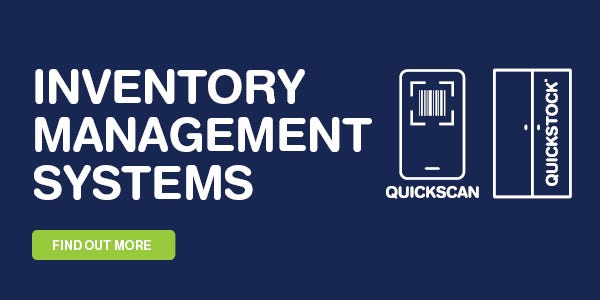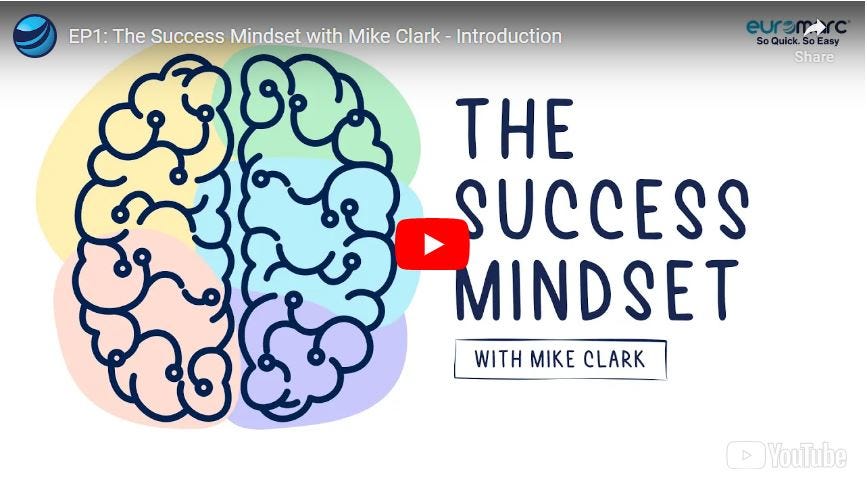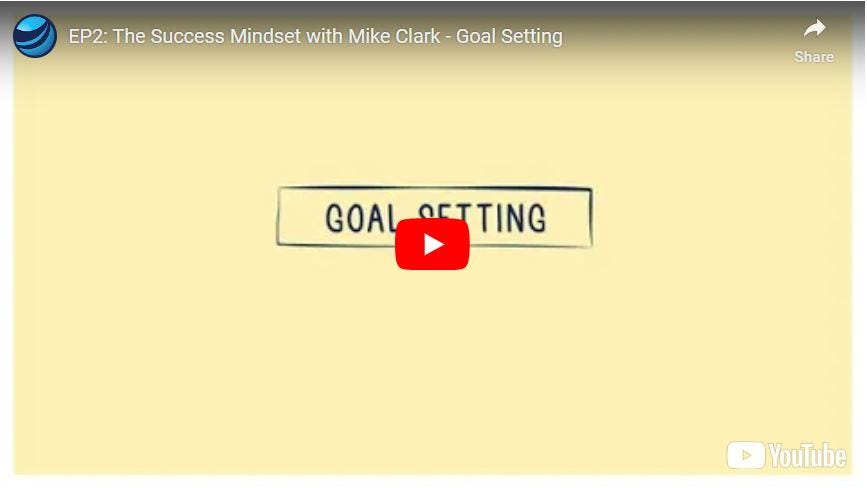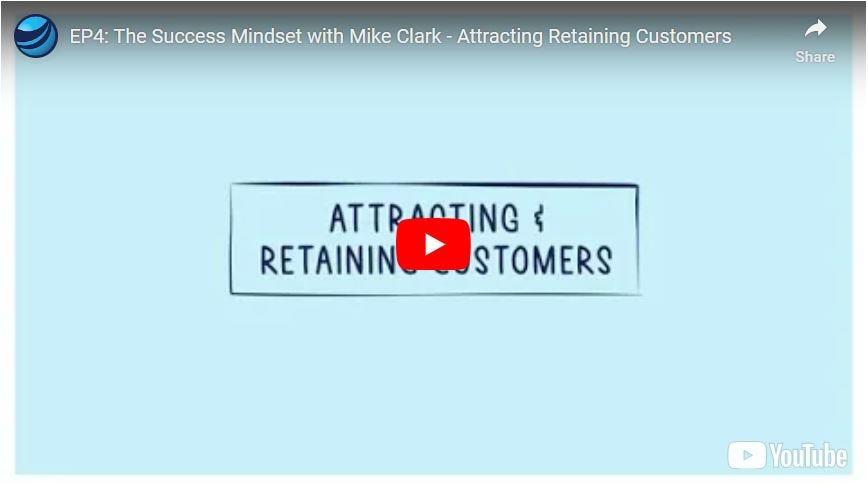EP3: The Success Mindset with Mike Clark - Staff Retention
Do you know your winning at the end of every day? In episode 3, Mike explores how to make an environment were people are set-up to succeed and win everyday.
Hi, everyone and welcome back to the Success Mindset video series with Mike Clark. In this episode, we'll be discussing the hot topic of staff retention Yep, Mike, we've talked about how keeping good employees is important and in an economy where we're facing worker shortages do you think this is something engineering companies should be prioritizing?
Absolutely, Andy. As I mentioned beforehand, one of the things that I'm coming across more and more with engineering companies I work with is that their best workers are getting shoulder-tapped and people are trying to poach them. And so, what engineering companies need to do is to make absolutely sure that, when that happens-- it's not an if; it's a when-- that happens, that their staff don't want to leave. And they actually come and say, hey, look, I've been shoulder-tapped by such-and-such a company.
So we want to be making absolutely sure that your staff are loyal and they want to stay. And it's for more than just the pay.
That's good. And how would you suggest engineering companies go about prioritizing staff retention?
When we do our priorities, we've got choices. And it's like, well, there's a choice of this and a choice of this. And one of the easiest things to look at, when we talk about prioritizing and choices, is money. You've got x amount of money. Where are you going to spend it?
And when we think about it like that, and you start to look at the cost of hiring a new person-- the time that it takes, the amount of investment, the way it upsets the team and the upheaval it brings-- you begin to realize that actually this is one of the top priorities for any business. And so a couple of things I'd like to cover through would be, what are the actual costs inside of that? And also, what does it do to the team, the culture inside a business?
There's something called the "four stages of team development," where you go from forming to storming, norming, and performing. And we're talking about being successful. And to be successful, you've got to be at that performing level.
So let's talk about the actual cost. If staff are unhappy in their job, they become a lot less productive. And so there's the cost of lower productivity.
There's the cost of negative culture, where people are looking for what's wrong with each other, with the job, with the management, with the business, rather than what's right. And we get more of what we focus on.
So we want to, as a team, have a culture where people are focusing on what's right. But should you lose a person, start to think about the actual cost. It's not just the fees you've got to pay to a recruitment agency and the cost of the adverts, but there's also the cost of the time to interview the people, the cost of the time to decide who you're going to have, the cost of the time to interview all of those people, the onboarding exercise, the training them to fit into your culture and your way of doing things. All of those costs add up. And for many businesses, they only often will look at the actual cost of the recruitment fee and the adverts and not realize that there's a far greater cost in time.
So I mentioned the model around forming, storming, norming, performing. And just very quickly-- every time you bring a new member on board, the whole team has to reform as a team. Where does that person fit, inside of the team? Who are they? How is it going to gel and impact your culture?
And so a team then has got a form. And if you've got good induction processes in place, that can help that. But then we go through storming. And once again, role clarity can make a big difference.
And so, be clear-- when you do bring people in, what is expected of them? What's the role clarity? And then accept the fact that there is going to be a period of tension, while we informally work out, well, where do I fit with you? What's happening in that space? Buddy programs can also help reduce the storming time.
The most dangerous place actually is in the norming, where we kind of hit cruise control, you and I rub along really well together, and we're just doing what's needed and what's necessary. And the role of good leaders, the role of good managers in a business, is to actually get people performing, operating at their highest level and their very best. And when you've got a team operating at that level, you want to keep that team. And once again, that's what makes retention so important.
That's good. So there's a lot of talk around offering flexible hours, work-from-home options, and mental-health days and, of course, financial incentives. But these aren't always viable options for engineering-type businesses.
I completely agree with that. Obviously, in engineering, quite often we've got big machinery, and it's not like we're going to pick that up and take that home. And so I do strongly encourage engineering companies to realize that people are spending most of their time at work, and it's actually important to create an environment where people want to come to work.
And in terms of incentives, different people are incentivized in different ways. Many people talk about pay being a big thing, but there is a lot of research that shows that, once you're paying somebody enough, pay actually comes off the table as an incentive. And so there's far more around what social environment are you creating for people and how much stress are they having to work under. How clear are you in your instructions? Do they know what's expected of them?
Google did an amazing piece of research, looking for what makes highly productive teams. Obviously they have the privilege of being able to employ the best of the best in the whole entire world. And when they looked at their teams, even though they were employing the best they still had some high-performing teams, mid-performing teams, and low-performing teams.
And so they initiated study-- called Project Aristotle, I think it was-- in which they then looked at what makes for high-performing teams. And what's really interesting is that the number-one factor that people needed was to feel safe. So you talked about the mental stress-- and with all that's happening in the world, at the moment, there is a lot of stress and strain, but do people feel safe at work?
And inside of that safety element, it doesn't mean that I need you to be nice to me all of the time and all the rest of it. It just needs-- I need to know my boundaries. I need to know what's expected of me. I need clarity of roles. And once I feel psychologically safe, then I need to be able to be dependable, myself, and to be able to depend on the people around me.
And so when we've got that, those elements there start to really help people to feel like they can contribute. And the need to be able to contribute, to be able to make an impact, in a business, to feel like you personally make a difference inside of that business, makes a big difference.
That's a really good point, Mike. So people feel good when they're able to achieve. So businesses should make a point around providing the resources they need to meet their targets.
Absolutely. And inside of that, when we talk about the work environment-- you are a product of your environment. If you go and speak to the people who train animals, they'll often say that, if you go and take a dog who's really badly behaved-- maybe he's been mistreated-- and you're going to put him into a pack of dogs who are really obedient, really well-behaved, it's the fastest way of getting that dog to behave and to conform. And human beings are much the same. We're a product of our environment.
So when we look at environments, how easy is it to do your work? One of the parts I love about what you guys offer is the quick stock option. It's so frustrating, feeling unproductive at work. The number-one factor that motivates people more than anything else is the feeling that you're winning at work. And when you know you're not winning, because you're having to run around after something or you're waiting on instructions, that kind of thing negatively impacts our environment.
People want to contribute. People want to make a difference. You know, theory x and theory y is a very old thing, and the old carrot-and-stick doesn't actually work that well.
People, generally speaking, want to come to work, want to give their very, very best. And if you can create an environment where people are set up to succeed, and people know that they're winning every day, that's what makes the difference. And as a result of watching this, I encourage engineers to go and ask their staff. Do you know you're winning, at the end of every day? And, if they don't, to then start to put something in place so that they know what winning looks like.
Yeah, that's good. That's been very insightful. On the other side, attracting customers and keeping them happy is also important for success.
Yes, absolutely.
So let's talk about that on the next episode. EP4: The Success Mindset with Mike Clark - Attracting and Retaining Customers.
 Need assistance?
Need assistance?







